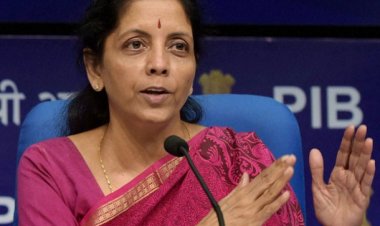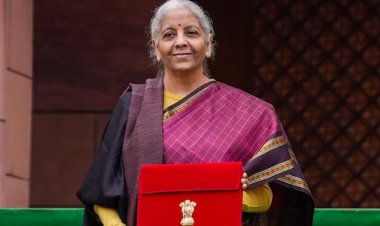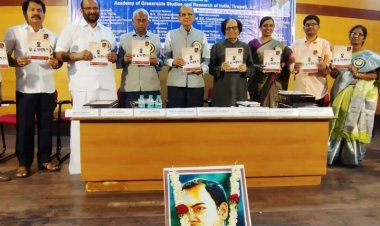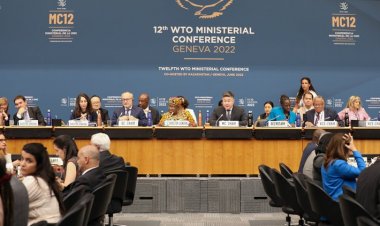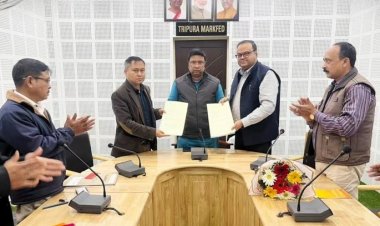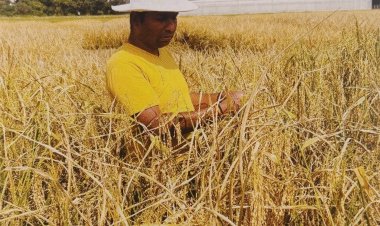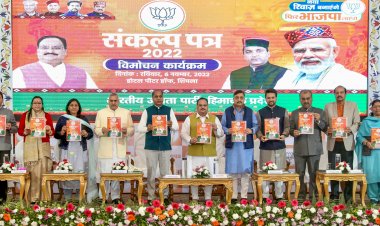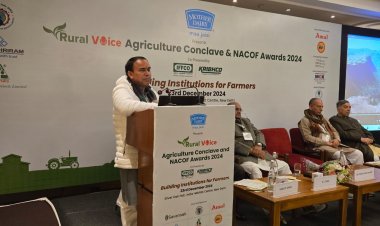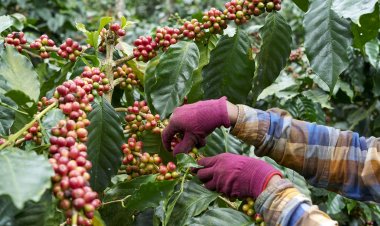Centre to promote export of millets
The Ministry of Commerce and Industry through its apex agricultural export promotion body, APEDA, has prepared the millet export promotion programme as part of its policy to promote the shipment of nutri-cereals. For the export of Indian millets, the Centre has planned to facilitate the participation of exporters, farmers and traders in 16 international trade expos and BSMs.
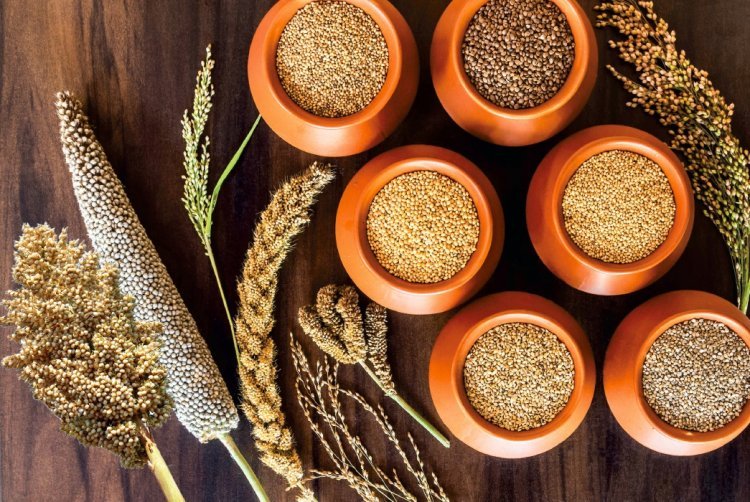
A comprehensive strategy has been formulated by the Government of India to boost the export of millets to various countries from next month.
The Ministry of Commerce and Industry through its apex agricultural export promotion body, Agricultural and Processed Food Products Export Development Authority (APEDA), has prepared the millet export promotion programme as part of its policy to promote the shipment of nutri-cereals.
The programme comes against the backdrop of India's proposal that was supported by 72 countries and that led to the United Nations’ General Assembly (UNGA) declaring 2023 as the International Year of Millets (IYoM) on 5 March 2021.
The government is currently organising IYoM-2023 at domestic and international levels to popularize Indian millets as well as its value-added products across the world and make it a people’s movement. India exported millet products worth $34.32mn during 2021-22.
The thrust on millet export coincides with the IYoM to be observed by the UN in 2023. Indian missions abroad would be roped in for branding and publicity of Indian millets.
For the export of Indian millets, the Centre has planned to facilitate the participation of exporters, farmers and traders in 16 international trade expos and Buyer-Seller Meets (BSMs).
As per the government’s robust strategy to promote millets, Indian missions abroad would be asked to help in the identification of international chefs as well as potential buyers such as departmental stores, supermarkets and hypermarkets for organizing business-to-business (B2B) meetings and direct tie-ups.
In addition, ambassadors of foreign missions in India and potential importers would be invited to showcase various millet-based products, including ready-to-eat millet products, and facilitate B2B meetings.
APEDA has planned to organise millet promotional activities in South Africa, Dubai, Japan, South Korea, Indonesia, Saudi Arabia, Sydney, Belgium, Germany, the UK and the US by facilitating the participation of different stakeholders from India in some of the significant food shows, BSMs and road shows.
As part of the promotion of Indian millets, APEDA has planned to showcase millets and its value-added products at various global platforms such as Gulfood 2023, Foodex, Seoul Food & Hotel Show, Saudi Agro Food, Fine Food Show in Sydney (Australia), Belgium’s Food & Beverages Show, Germany’s BioFach and Anuga Food Fair, and San Francisco’s Winter Fancy Food Show.
India is one of the leading producers of millets in the world. As per FAO, the global production of millets in the year 2020 was 30.464 million metric tonnes (MMT) and India’s share was 12.49 MMT, which accounts to 41 per cent of the total millet production.
India recorded 27 per cent growth in millet production in 2021-22 from 15.92 MMT in the previous year. The top five millet-producing states are Rajasthan, Maharashtra, Karnataka, Gujarat and Madhya Pradesh.
The share of export of millets is nearly 1 per cent of the total millet production.
Exports of millets from India include mainly whole grain. The export of value-added products of millets from India is negligible.
However, it is estimated that the millets market is set to grow from its current market value of more than $9bn to over $12bn by 2025.
The pre-launch of IYoM-2023 is scheduled for 5 December 2022 involving stakeholders of the supply chain such as FPOs, start-ups, exporters and producers of millet-based value-added products.
Besides, BSMs would also be organized in the countries of Indonesia, Japan and the UK to promote Indian millets.
APEDA will also organize food sampling and tasting at the retail level and in key local bazaars of targeted countries where individual, household consumers can gain familiarity with millet products.
For promotion of Indian millets and its value-added products, the Centre has developed 30 e-Catalogues on each of the targeted countries comprising information on various Indian millets and the range of their value-added products available for export, list of active exporters, start-ups, FPOs and importer/retail chain/hyper markets, etc. that is to be circulated to the Indian Embassy abroad, importers, exporters, start-ups and stakeholders.
The Government is also mobilising start-ups for export promotion of value-added products in the Ready to Eat (RTE) and Ready to Serve (RTS) categories such as noodles, pasta, breakfast cereals mix, biscuits, cookies, snacks, sweets, etc.
As per the centre’s millet promotion strategy, major international retail supermarkets like Lulu group, Carrefour, Al Jazira, Al Maya, and Walmart would also be roped in to establish millet corners for the branding and promotion of millets.
APEDA has also created a separate section for millets on its website and the country-wise and state-wise e-catalogues have been uploaded for information to the stakeholders.
The government has also started formulating a five-year strategic plan for the promotion of millets and value-added millet products in the international market in association with the ICAR-Indian Institute of Millets Research (IIMR), Hyderabad, ICMR-National Institute of Nutrition, Hyderabad, CSIR-Central Food Technological Research Institute (CFTRI), Mysore, and Farmer Producer Organizations (FPOs).
The Centre has created the Nutri Cereals Export Promotion Forum to give impetus to the export of potential products, including millets, and to remove the bottlenecks in the supply chain of nutri cereals.
Millets have superior nutritional values in comparison to highly consumed cereals such as rice and wheat. Millets are rich in calcium, iron, and fibres that help in fortifying essential nutrients for healthy growth in children. Also, the usage of millets in infant food and nutrition products is increasing.
As per the Directorate General of Commercial Intelligence and Statistics (DGCI&S) data, India registered a growth of 8.02 per cent in the export of millets in the financial year 2021-22 as the export of millets was 159,332.16 metric tonnes against 147,501.08 metric tonnes during the same period last year.
The major countries where India exports millets are the UAE, Nepal, Saudi Arabia, Libya, Oman, Egypt, Tunisia, Yemen, the UK and the US. The varieties of millets exported by India include Bajra, Ragi, Canary, Jawar and Buckwheat.
The major millet-importing countries in the world are Indonesia, Belgium, Japan, Germany, Mexico, Italy, the US, the UK, Brazil and the Netherlands.
There are 16 major varieties of millets that are produced and exported, including Sorghum (Jowar), Pearl Millet (Bajra), Finger Millet (Ragi), Minor Millets (Kangani), Proso Millet (Cheena), Kodo Millet (Kodo), Barnyard Millet (Sawa/Sanwa/Jhangora), Little Millet (Kutki), Two Pseudo Millets (Buckwheat/Kuttu), Ameranthus (Chaulai) and Brown Top Millet.
APEDA has also signed a Memorandum of Understanding (MoU) with IIMR to boost value-addition and farmers’ income. It launched a variety of millet products for all age groups at affordable prices ranging from Rs 5 to Rs 15 during the AAHAR food fair, which is Asia’s biggest B2B international food and hospitality fair.
(Subhashis Mittra is a New Delhi-based senior journalist, freelance writer, political commentator and public policy analyst.)



 Join the RuralVoice whatsapp group
Join the RuralVoice whatsapp group


















